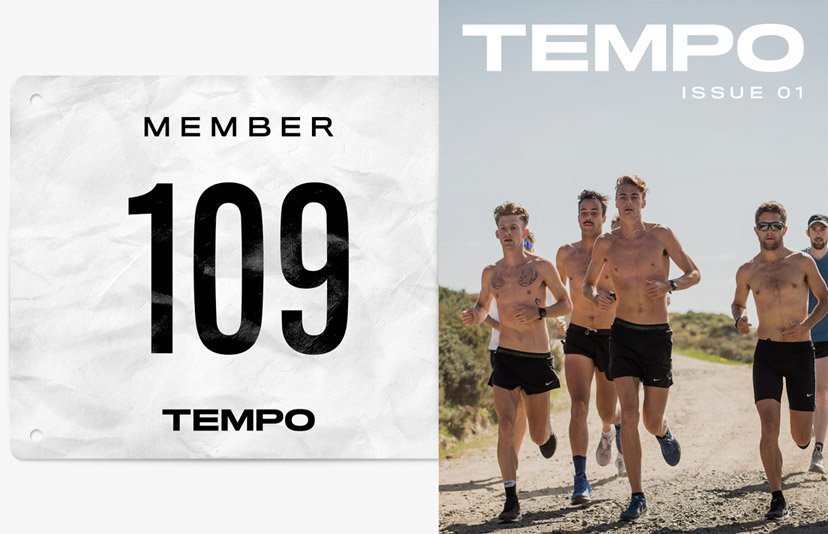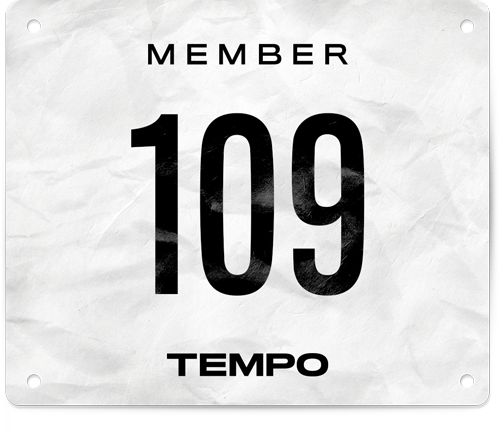Culture
Championing Cultural Diversity at the Sydney Marathon
How the Newest Major Is Forming Connections with First Nations and Muslim Communities
Editor’s note: Helping break down the idea that running is only for a certain type of person, the Sydney Marathon is doing more than ever to ensure it welcomes culturally diverse communities. This includes the recent launch of its First Nations Strategy as well as the recognition of Australia’s first Muslim run crew as a Partner Run Club.
This is the third feature in Tempo Journal’s five-part look at some of the dozen community ambassadors who are the beating heart of Sydney 2025. Read the first and second articles in the series.
As a Muslim woman living in Western Sydney, Nina Ajaj never believed that running was for her. “I didn’t grow up playing organised sport and I struggled with the idea of what a ‘real runner’ should look like,” she explains. “I thought you had to be fast, athletic and be able to run non-stop for hours.”
But in 2019, the then 32-year-old stood on the sidelines of the Sydney Marathon finish line and felt “captivated”. “The marathoners looked exhausted, yet fulfilled, with the crowd going wild cheering them on,” she says. “Their joy and grit lit something in me, and I wanted that experience.”
Fuelled with inspiration, Nina set out on a journey that would not only see her take on half marathon after half marathon but also the full 42.2 kilometres four years after she watched the marathoners cross the line.
“We started the Sydney Muslim Run Club to create a space where Muslims could show up exactly as they are – to run, connect and feel truly seen.”
Nina Ajaj
In doing so, Nina found her strength. “Training for the Sydney Marathon in 2023 took me out of my comfort zone and forced me to reshape the ideas I had about myself,” the now 37-year-old explains. “I pushed myself on runs and distances I thought I could never do, and redefined in my own mind what it means to be a runner.
“As a Muslim hijabi, running also allows me to write my own narrative of who I am, and I like breaking the stereotypes of what it means to be a Muslim woman. We’re not oppressed, except by the limitations society places upon us.”
Beyond the challenge of building a level of fitness that Nina had never had before – it took her seven months on the treadmill to build up the confidence to run outside – her journey to the 2023 Sydney Marathon was not without its barriers, many of which most people wouldn’t be able to comprehend.
“As a hijabi, clothing was a huge hurdle,” says Nina. “Early on, I’d layer tights, long shorts, a long-sleeve top, and a hijab – just getting dressed felt like a workout. The discomfort (and laundry) often kept me from running at all. It took trial and error, and eventually I found an outfit that was both modest and functional.”
Being visibly Muslim also added another layer of complexity. “During times of heightened tension, I’ve been harassed while running and called a terrorist, and I've even had security speak to me for wearing a hydration vest. It’s exhausting navigating these stereotypes while simply trying to exercise.”
Unfortunately, it wasn’t just public perception that Nina had to deal with. “There was also hesitation within my own community,” she says. “For some, a woman running – especially in hijab – was hard to accept. My parents worried that I’d be attacked.”
Someone who understands exactly where Nina’s coming from is Jasmine Al-Zoubi, a 26-year-old fellow Muslim woman living in Western Sydney. She got into running almost a decade ago as part of a health kick to combat the stress of high school and unhealthy eating habits, but it wasn’t until 2023 that Jasmine started to train for her first half marathon, despite not having a ticket.
“I didn't want to sign up for the race because I was too scared that I wouldn’t be able to finish that distance,” she says. “In my head, I wasn’t a runner. I wasn’t built to be a runner, I wasn’t made for running, and I didn’t know how to run properly. That’s what I heard from others as well.”
“As a Muslim hijabi, running also allows me to write my own narrative of who I am, and I like breaking the stereotypes of what it means to be a Muslim woman.”
Nina Ajaj
Yet Jasmine was determined to challenge herself and see what she was capable of. “So I set myself up and started training for a half marathon,” she explains. “One month before the race, I went to sign up because I was confident that I was able to at least complete the distance, but the race was sold out. In my head, I was like, ‘Okay, I have two options: Either I stop here, or I just don’t waste all that training and continue. If I can do the 21.1, I can do the 42.2.”
That’s how Jasmine came to join the Sydney Marathon Run Club in 2023. “I had all these negative thoughts about going to that run club, thinking, ‘Everyone’s going to see how slow I am; it’s going to be so embarrassing; what am I doing?’ And of course I was the only one in a hijab there, so that was also in the back of my mind. But thankfully, I ripped off the mental bandaid and just did it.”
While Jasmine was able to tear the bandaid off before she crossed the finish line of the Sydney Marathon two years ago, like Nina, she also faced scrutiny. “In our culture, especially around five years ago in our area, people weren’t just going for a run,” the 26-year-old explains. “It was very little how many times you’d see a runner on a morning run. My dad was surprised, like, ‘What do you mean you’re going to go for a run on the street? Why would you do that?’. And I’ll never forget my mum getting a phone call from her friend asking, ‘Why is your daughter running on the street? What’s going on? That’s so weird.’”
But Jasmine insists she wouldn’t change the challenges she’s come up against because “it’s all part of the journey” and it’s shaped her into who she is today.
“I think the beautiful thing about running is that it definitely did help me find my voice,” says Jasmine. “Running reminds me that it’s not about what other people tell me I can and can't do – it's about what I'm actually doing. I feel like running gave me that empowerment. As a Muslim woman who wears a hijab, you’re technically a minority, you’re stigmatised, or people may look at you funny. But somehow running has given me more confidence than anything else.”
“Running reminds me that it’s not about what other people tell me I can and can't do – it's about what I'm actually doing … As a Muslim woman who wears a hijab, you’re technically a minority, you’re stigmatised, or people may look at you funny. But somehow running has given me more confidence than anything else.”
Jasmine Al-Zoubi
Jasmine says it’s “mind blowing” how much confidence running has given her. “I'm not shrinking myself to fit anyone's expectations anymore,” she says. “There are no filters, this is just it, and it's the confidence of, ‘Well, I didn't quit, I pushed and I worked and I tried and I ran and it's definitely given me a voice, and I absolutely love it all the more for it.”
Nina’s and Jasmine’s individual journeys led both women to be selected as community ambassadors for the 2025 Sydney Marathon, but their lives really collided when they were connected by the event’s community engagement team. The result was the launch of the first run club of its kind in Australia.
“We started the Sydney Muslim Run Club to create a space where Muslims could show up exactly as they are – to run, connect and feel truly seen,” Nina explains. “While the broader running community is generally welcoming, it can be isolating when you're the only visible Muslim at a race. With our club, we’ve built a space where faith and fitness can coexist naturally – stopping to pray before a run, training through Ramadan while fasting, and running in a hijab without being met with constant questions like, ‘Aren’t you hot in that?’ It might seem harmless, but those moments can make you feel like you don’t belong. Here, we don’t have to explain anything, we just run.”
The response from the Muslim community, she explains, has been nothing short of incredible. “Our weekly runs have grown into something people genuinely look forward to, and friendships have formed between members and with other running groups,” says Nina. “It’s been so nice having a community at the start and finish lines too. For years I was on my own and sometimes the only hijabi running the race.”
With our club, we’ve built a space where faith and fitness can coexist naturally – stopping to pray before a run, training through Ramadan while fasting, and running in a hijab without being met with constant questions like, ‘Aren’t you hot in that?’
Nina Ajaj
From the moment the Sydney Muslim Run Club kicked off in February, the Sydney Marathon has been an “incredible supporter and advocate”. From members of the leadership team attending the club’s launch, to selecting the club as an official Partner Run Club, which Nina says was a “massive honour”. The Sydney Marathon team has also been on the ground at the co-hosted Sydney Marathon Run Club events in Western Sydney each month, helping to support runners with gels, hydration and more.
“Our community feels seen and respected,” adds Nina, “and it’s become a space where people feel truly welcomed and supported. We have a team of runners who will be running their first marathon this year (and what a marathon to debut at) and it has been really rewarding to assist them during their journey to race day. It’s also been beautiful seeing the bonds forming between our members and members of Sydney Marathon Run Club, despite coming from different backgrounds. It’s our love for running that brings us together.”
Without the Sydney Marathon’s support, encouragement and motivation, Jasmine says she never would have started the Sydney Muslim Run Club in the first place. “Now when I rock up to the Sydney Marathon Run Club’s monthly events at Barangaroo, I’ve got like 15 other Muslims with me and it’s just so incredible and very hard to wrap my head around sometimes. But I see the effort that the team at the Sydney Marathon goes to to ensure diversity in the running community, and I’ve seen firsthand how far they’re willing to support members of different communities to make sure the running environment in Sydney is diverse, inclusive and welcoming.”
“Having a [First Nations] strategy in place opens the door for more meaningful participation and helps create environments where mob feel welcomed, seen and respected.”
Georgia Weir
As part of its support for diverse and often marginalised communities within Australia, the Sydney Marathon has also developed its own First Nations Strategy. This was created in collaboration with TriMob founder Nat Heath, another community ambassador, to demonstrate the Sydney Marathon’s commitment to share First Nations culture, and celebrate Aboriginal and Torres Strait Islander people and their continuous connection to the land we run on. The strategy also promotes opportunities for First Nations people to experience the transformative power of running.
The Sydney Marathon Run Club also recently marked the end of NAIDOC Week with a special edition of their monthly event, featuring a Welcome to Country and performance by Indigenous dancers.
“I think it’s really positive to see an event as big as the Sydney Marathon recognise the importance of a First Nations Strategy,” says Georgia Weir, the founder of Deadly Runners, a run club in south-eastern NSW. “It shows a genuine commitment to inclusion, not just in words but in action. Having a strategy in place opens the door for more meaningful participation and helps create environments where mob feel welcomed, seen and respected.”
“Deadly Runners is far more than just a running club. It’s a movement grounded in cultural pride, community and long-term social change. But creating Deadly Runners meant pushing back against stereotypes and carving out a space where mob could show up, feel proud and belong.”
Georgia Weir
After coming to running as a last resort to help manage her mental health and win a battle with alcohol addiction, Georgia says the sport didn’t just improve her health; it completely changed the trajectory of her life. “Running gave me clarity and a sense of achievement I hadn’t experienced before,” she explains. “Through running, I’ve found my purpose, using it as a platform to break down stereotypes, create opportunities and support my community’s health and wellbeing.”
It was after taking part in the New York Marathon in 2013 that Georgia completed a certificate in fitness and athletics coaching and started Deadly Runners. But, like Nina and Jasmine, she also faced barriers along the way. “One of the biggest challenges has been being taken seriously as a First Nations female entrepreneur, and helping people understand that Deadly Runners is far more than just a running club,” the mum of five says. “It’s a movement grounded in cultural pride, community, and long-term social change. But creating Deadly Runners meant pushing back against stereotypes and carving out a space where mob could show up, feel proud and belong. It hasn’t been easy, but it’s been worth it.”
Deadly Runners is now one of the Sydney Marathon’s 20 official Partner Run Clubs, which Georgia says has been great for her community. “The Sydney Marathon has actively worked to make space for us and that visibility is powerful,” she explains. “Our runners feel a real sense of belonging lining up alongside thousands of others, proudly wearing our singlets. The Sydney Marathon’s efforts to make the event more inclusive and culturally aware haven’t gone unnoticed, and that kind of action matters because it sends the message – you belong here."
“Through running, I’ve found my purpose, using it as a platform to break down stereotypes, create opportunities, and support my community’s health and wellbeing.”
Georgia Weir
As one of the first people in her Muslim community to run a marathon, Nina is a living example that everyone truly should be welcome within running's broad family. “Being seen as an inspiring member of my community is incredibly humbling, and a reminder of how powerful representation can be," she says. "For me, it’s not about being the fastest or fittest runner; it’s about showing up as I am, consistently, and creating space for others to do the same.”
For Nina, away from the finish lines and roaring crowds, her favourite moment was running past her local primary school. “A group of girls wearing the hijab were so excited to see a ’hijabi athlete’ that they started wildly cheering and clapping me on,” she describes. “When people see someone who looks like them – who wears a hijab, runs at their own pace, and navigates similar challenges – it helps break down the idea that running is only for a certain type of person. I want people to know that you don’t have to fit a mould to belong in this space, and that you can start later in life, run slowly, wear what aligns with your values, and still be a runner.”
After running 21 kilometres for the first time, Jasmine admits that she called her mum and “bawled her eyes out”. “I just couldn’t believe that I did it,” she says. “So if someone can look at me – a Muslim woman who wears the hijab, doesn’t consider themselves athletic, and started from zero to now comfortably take up space in the running community – it means a lot.”
She calls it proof that you don’t need to look a certain way to be a runner, and that running truly is for everyone. “We all belong,” she insists, “we all have room to fit. And I really, really, really, encourage everyone to just take that first step.”


